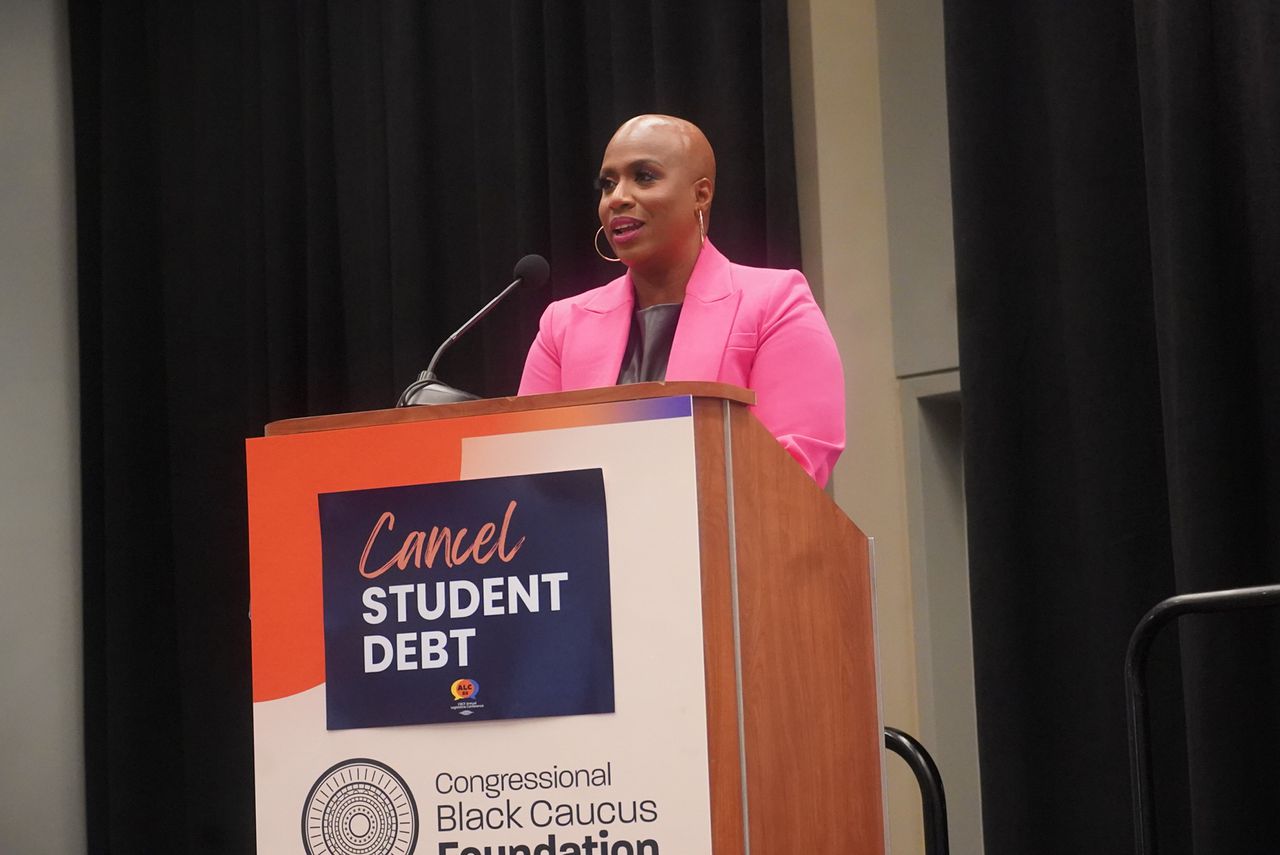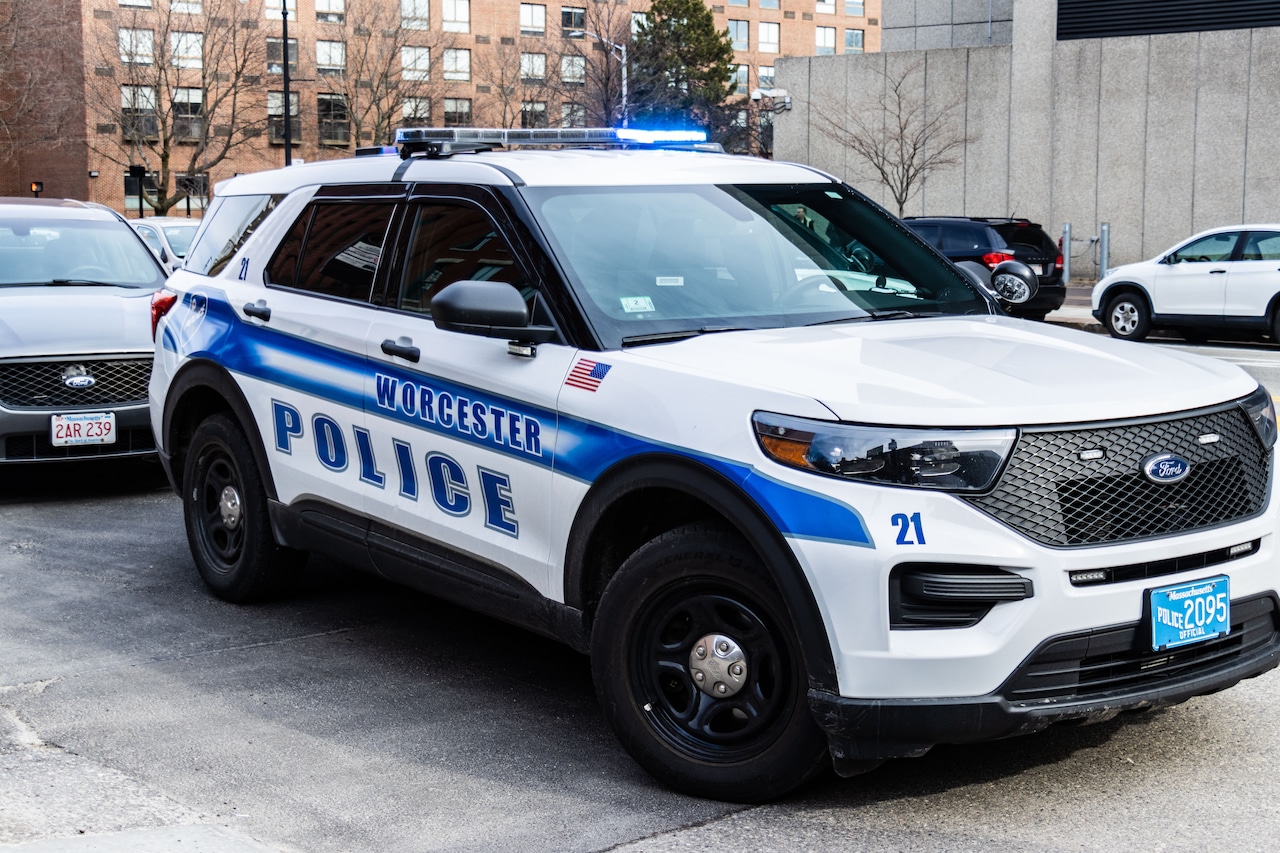
Two Massachusetts lawmakers have unveiled a new resolution honoring Americans who have lost loved ones to homicide, saying it’s their effort to provide families with recognition and healing in the face of an incalculable loss.
The language backed by U.S. Rep. Ayanna Pressley, D-7th District, and U.S. Sen. Ed Markey, D-Mass., would designate Nov. 20 through Dec. 20 as “National Survivors of Homicide Victims Awareness Month.”
Massachusetts already recognizes those dates for the same purpose at the state level, the two lawmakers said in a joint statement. And last year, Boston City Council passed an ordinance led by Councilmember At-Large Julia Mejia in support of Pressley’s resolution.
“Too many families are denied the recognition and healing they deserve when their loved ones are stolen by violence, which is why we’re keeping up the fight to establish a National Survivors of Homicide Victims Awareness Month.” Pressley said.
While Massachusetts has some of the most restrictive gun laws in the country, gun violence continues to take a deadly toll across the commonwealth. In an average year, 244 people die and 688 are wounded by guns in Massachusetts, according to data compiled by the activist group Everytown for Gun Safety.
Pressley, who called gun violence a public health crisis, said elected leaders can’t allow “homicides and the trauma they cause to become normalized in this country.
“Our resolution honors the voices and experiences of survivors of homicide victims, and I am so grateful to Senator Markey and the Louis D. Brown Peace Institute for their partnership. Congress must pass this resolution without delay,” she said.
- Read More: Read the full text of the resolution here.
Markey offered a similar sentiment, observing that “losing a loved one to gun violence is one of the most painful events a person can live through. Gun violence not only inflicts mental trauma on survivors and victims, but also presents economic burdens on families and communities.”
For every one homicide victim, there is an average of 10 surviving family members who suffer their loss in its aftermath. Through the resolution, the lawmakers said they’re looking to “promote awareness of the intergenerational, traumatic, and lasting impacts of gun violence on families and broader communities.”
The resolution would do that by:
- Encouraging “support for survivors of homicide victims, including families, schools, and communities, with support services, information, and research to better address the needs of families and communities severely impacted by violence and to consider ways to improve access to, and the quality of, mental health services for survivors of homicide victims,” and by
- Calling “on the people of the United States, interest groups, and affected persons to take an active role in the fight to end gun violence and homicide; to respond to all families suffering in the aftermath of homicide with consistency, compassion, competence and centering the principles of love, unity, faith, hope, courage, justice, and forgiveness; and to observe National Survivors of Homicide Victims Awareness Month with appropriate activities.”
The effort has the backing of the Dorchester-based Louis D. Brown Peace Institute, which focuses on caring for families and communities that have been impacted by crime. The organization takes its name from the late Louis D. Brown, a 15-year-old Dorchester resident, who was caught in the crossfire of gun violence in 1993.
“As gun violence and homicides continue to rise, the survivor rate continues to climb. Families across the country feel its residual impact, especially during the holiday season. It is important, now, more than ever, we honor the unique experiences of survivors of homicide victims,” the group’s president and CEO, Chaplain Clementina M. Chéry, said in a statement.
The organization has been pushing for such recognition for two decades, officials said.
“Back in 2000, an ad hoc committee of survivors of homicide victims [in Massachusetts] came together and said, we deserve some space in the calendar year to be observed and to be celebrated, and to have permission to honor our loved ones,” Alexandra Chéry-Dorrelus, its co-executive director, said.






